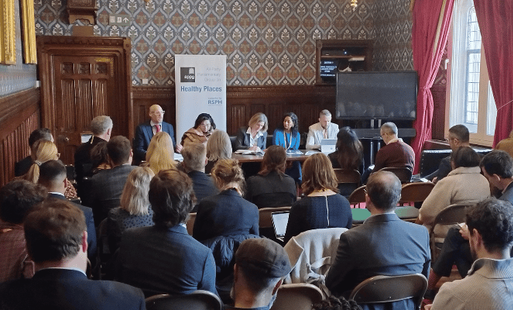New RSPH report calls for people to get talking about health issues
Author: RSPH 19 February 2025 1 min read
By training professionals to include conversations about health into their daily routines, we can improve the health outcomes of the public.

The public want people working in public facing roles to be trained to have conversations about physical and mental health, a new report by the Royal Society for Public Health has found.
‘What are you talking about?’ argues that everyday conversations have the potential to influence healthy behaviours like exercise, drinking less, and quitting smoking, as well as signposting to further support on issues like mental health and the menopause.
Polling of nearly 2,000 adults found that across a range of settings where the public and staff are regularly talking, most Brits would like to see more training to promote physical and mental wellbeing.
The report calls for the widespread roll out of the Making Every Contact Count (MECC) approach across everyday settings including workplaces, care homes, gyms and schools.
MECC trains professionals to help them integrate conversations about health and wellbeing into routine practice. These conversations encourage and support the public to make healthy behaviour changes, and signpost them to relevant information.
The report comes amidst a public health crisis, as life expectancies drop and long-term health conditions like chronic pain and diabetes rise. It argues that small behaviour changes will have an impact on the overall health of the UK and help to reduce pressure on the NHS.
It also calls for more preventative health measures to be implemented to intervene early and influence behaviour change.
There are millions of conversations that happen everyday that could be so much more impactful if health came up.
William Roberts FRSPH, Chief Executive, Royal for Society for Public Health
There’s a perception that as a nation we prefer shying away from talking about our health and wellbeing. We need to move away from this and get talking.
Early interventions like MECC that encourage people to make healthier choices that will be key to moving to a truly preventative approach.
Prevention in its truest form is about empowering the public to stay well and out of hospitals. Making that a reality will mean embedding the ethos of prevention across society through interventions like MECC.
Find out more about our new MECC eLearning.



